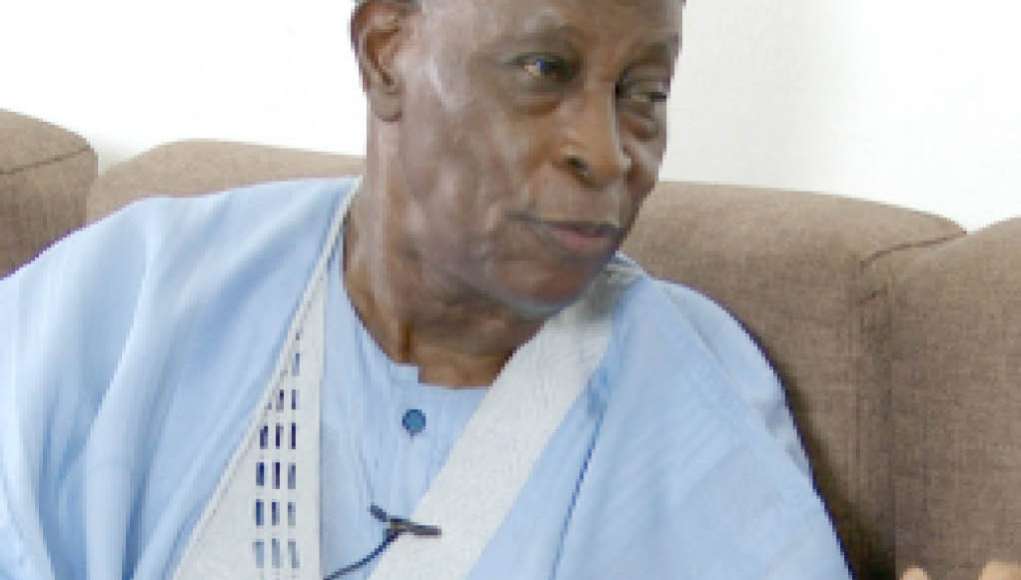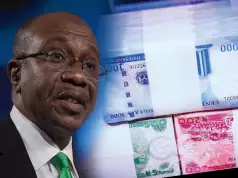On the backdrop of the current inflation rate, former Secretary to the Government of the Federation (SGF) and Minister of Finance, Olu Falae has harped on the need for the government to manage inflation the right way.
He explained that “As of August 1990 when I ceased to be Minister of Finance, the exchange rate was 5, naira 50 kobo to the American Dollar and that was when we were screaming about SAP. And we could have stabilised it at that level but I left office in August 1990 to go into politics. Thereafter I can’t explain what happened but the naira nose-dived and since then it’s been a free fall, unfortunately. And the consequences are that imports have become extremely expensive. And unfortunately, Nigeria is very highly import dependent.”
Speaking during an interview on Channels Television’s programme , Falae further stated that, “Once the exchange rate is not right, the naira is weak, then automatically we are importing a lot of inflation to the country. The devaluation of the naira is the main cause of the high level of inflation today in our country. I suspect that the scarcity of the naira is an attempt by the government and the Central Bank to manage this inflation. If that is so, I’m afraid they have to think again because the high level of price inflation is not caused essentially by excess liquidity. It is not what we call a demand-pull inflation; it is cost push inflation, the cost of raw materials of machinery and spare parts. The increased cost in those items is what is causing substantially the inflation we are facing today.
READ ALSO: I’m Confused Over Moving To Senate Or Staying In Tinubu’s Government – Lalong
So, trying to mop up liquidity in my view is not the right thing to do. There may be other reasons for making the naira scarce. But surely, the reason should not be an attempt to manage what is essentially cost-pull inflation through what I call a traditional solution to demand-pull inflation.”
Commenting on the idea of the president retaining the position of the petroleum minister, he said, “I believe that there ought to be a minister for every important subject in government including petroleum. But I know that petroleum is so important to the finances of government that no president has been able to take his hands off petroleum completely; not Babangida because he had minister of petroleum, not Obasanjo because he had Buhari as petroleum minister; no president has been able to take his hands off petroleum because it is so important but conceptually it is necessary and important to have a man of integrity called the minister to manage petroleum industry on behalf of the president and Nigeria so that he can be held accountable.
“As the former Emir of Kano said, out of respect for the office of the president, people are reluctant to attack the policies in petroleum because they don’t want to be seen as attacking the president. But if it’s the minister of petroleum, then comments, suggestions and criticisms will be more robust and frequent. I think it’s good for us to have a petroleum minister. Of course, all ministers report to the president but the president does not have to be minister for petroleum. That’s my view and I share that with Alhaji Sanusi.”
Still on issues surrounding the petroleum industry, the elder statesman who noted that the federal government is incapable of running the refineries, advised the government to repair Nigeria’s refineries and sell to those who can run them.
His words, “The government should repair and sell refineries to those who can run them. Crude oil is our national endowment and should be sold at the cost of production plus little margin.
My belief is that Nigeria’s problem with fuel and its price will be substantially resolved when we are able to repair and recommission our refineries and sell them to those who can run them.”
Regarding challenges facing the manufacturing industry in the country, Falae said, “The manufacturing sector is almost dead in Nigeria… once power is inadequate, manufacturing will suffer.
“Unfortunately, the manufacturing industry is almost dead in our country. I am very sad to observe that because of the multiplicity of the problems that we have. Unless we revive, revitalise, and resuscitate the manufacturing industry, our dependency on imports will continue, and imported inflation will continue to be a major problem, and the way to revive the manufacturing industry is well known to policymakers.
And as long as your power supply is inadequate, unreliable, and expensive, manufacturing is going to suffer and products will be very expensive.”









![Gov. Otti Sends Judicial Service Commission Nominees For Screening [See List] Gov. Otti Assents To Bill Establishing A Body To Oversee Development Of Aba](https://abntv.com.ng/wp-content/uploads/2023/12/Otti-Signs-Bill-100x75.jpg)
